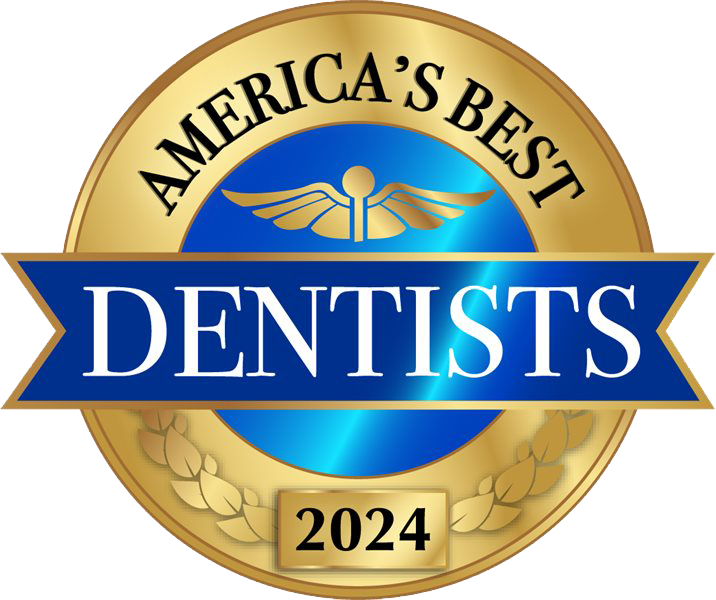Blog Layout
Why Did My Dentist Recommend a Full Mouth Reconstruction?
Cherrywood Dental • Sep 19, 2017
When your dentist recommends a new treatment, you’re usually a little nervous about what’s ahead. And when that treatment plan includes a collection of restorative measures aimed at rebuilding your entire smile and restoring its health, you’re even more anxious.
Rest assured: if you’re facing a full mouth reconstruction, there’s nothing to stress about. And learning more about what’s likely to be involved in your own treatment plan will help quiet any fears.
The first step? Asking your dentist any lingering questions – before you start treatment. Plan ahead so that you know exactly what to expect, and there are no unwelcome surprises.
Step two? Read on for a quick primer on full mouth reconstruction – and what might be involved in your own treatment plan. If we don’t answer your questions, get in touch with our front desk for assistance. You deserve to feel completely comfortable with your treatment before you begin.
What exactly is full mouth reconstruction?
A full mouth reconstruction is a treatment plan that provides comprehensive rehabilitation for damaged teeth. Technically, the plan can be referred to as full mouth reconstruction if it affects most or all teeth in the mouth. This plan takes both aesthetics and function into account, so the new smile looks natural and functions as well as (if not better than) the patient’s natural teeth.
You may be a candidate for FMR if you have
- Several missing teeth
- Many teeth with large fillings
- Many cracked, broken or chipped teeth caused by years of bruxism or other bad habits
- A condition that leads to worn or damaged teeth or causes poorly developed teeth
- Chronic pain related to jaw dysfunction
- Oral cancer – Some treatment options for oral cancer involve replacing missing teeth and also missing structures of the oral cavity.
Full mouth reconstruction candidates should be in good health so that they can receive local or even general anesthesia. Younger patients typically recover from surgery more quickly, but there is not an age restriction.
Talk to your dentist before moving forward with oral surgery (to place implants, extract teeth or perform root canals) if you have heart problems or an autoimmune disease.
You may also be required to make significant changes to your regular habits to ensure that your restorations last. After all, following significant dental work, the last thing you want is for the work to fail. But if you’re a tobacco user, a heavy drinker, or do not typically perform good oral hygiene, you will need to make big changes so that you can make sure that your restorative treatment stays with you.
What types of treatments are involved in full mouth reconstruction?
Your full mouth reconstruction will be unique – and you can’t know what will be involved until you have a consultation with a qualified dentist. The treatment plan they might recommend could involve one or several of the following treatments:
- Restorative treatments – Crowns, bridges, fillings, inlays, onlays
- Dental implants – Titanium tooth root replacements that integrate with the jaw bone
- Cosmetic treatments – Veneers, teeth whitening, dental bonding, contouring for teeth or gums
- TMJ/TMD treatment – Resolving issues with the jaw joint to improve function and reduce pain
- Bruxism treatment – TMJ therapy and/or a night guard to protect teeth from clenching and grinding
- Orthodontic treatment – Metal braces, Invisalign, expanders, retainers
- Oral surgery – Root canal therapy, gum grafts, bone grafts, tooth extractions
- Periodontal treatment – Periodontal surgery or scaling and root planing to heal your gums and recover from periodontal disease
How long with my treatment plan take?
There are multiple approaches to full mouth reconstruction. Your dentist will choose the one that best fits your needs and your preferences; some treatments also require longer healing periods (like dental implants).
These are the typical FMR timelines –
- Treatment completed over a longer period (a few months to a few years) – If a patient requires most of their existing dental work or teeth to be replaced, this will take some time. When treatment is completed, all teeth will have been improved individually.
- Treatment completed in a few weeks – In this plan, your dentist will have all restorations ready at the same time and place them at once.
- Other options – If you receive ongoing therapy for a jaw disorder, for grinding, or for other underlying problems, this can take time and effort. You may need to have bite or jaw repositioning to retrain your jaw to move in healthy ways.
Whether you’re preparing to begin full mouth reconstruction or you are looking for more information about your options, we’re here to help. We offer complimentary consultations so that new patients can gather information without having to make commitments. We also offer dental implant specials to make your tooth replacement more affordable. Don’t hesitate to reach out if you would like to learn more.
© 2024
All Rights Reserved | Cherrywood Dental Associates
781-469-0771
301-973-6160
Website designed and maintained by Xpress, INC

